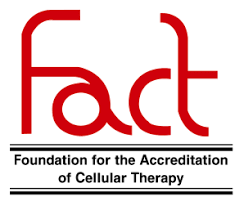 Debe Griffin, MSc, ASQ CPGP, has over 20 years of experience in the cell therapy field, both in bench positions and in leadership. Her primary interests are process improvement, quality assurance and regulatory affairs. She is a consultant with FACT Consulting Services as well as Chimera TQM. She has over a decade of experience as a FACT inspector and auditor.
Debe Griffin, MSc, ASQ CPGP, has over 20 years of experience in the cell therapy field, both in bench positions and in leadership. Her primary interests are process improvement, quality assurance and regulatory affairs. She is a consultant with FACT Consulting Services as well as Chimera TQM. She has over a decade of experience as a FACT inspector and auditor.
In this month’s post, invited guest blogger Debe Griffin discusses the changes to the Foundation for the Accreditation of Cellular Therapy (FACT) Standards, and how they will impact manufacturing facilities developing cell-and-gene therapies (CGTs).
With the recent news reports about the U.S. Food and Drug Administration (FDA) cracking down on unscrupulous stem cell clinics in the U.S., there might be a question of who is safeguarding the public’s interest in Canada. While Health Canada provides the same level of oversight for Canadians, there is also an accreditation body that offers assurances that a cellular therapy facility has reached a level of quality that ensures patient safety.
FACT inspects and accredits programs that provide high-quality health care encompassing all aspects of a cellular therapy program (clinical, collection, and cell processing). The voluntary FACT accreditation program is facilitated by a network of peer professionals in the field who help each other improve cellular therapy practices.
FACT History
Regulations and standards for cellular therapy can be a bit murky to an outsider who may not know if biological materials are regulated. Is it a drug? Is it a device? Is it the practice of medicine?
Back in the 1990s, before the FDA determined how to categorize cell products, two societies made the decision to impose self-regulation. The American Society of Bone Marrow Transplant (now the American Society for Blood and Marrow Transplant, ASBMT) and the International Society for Hematopoietic and Graft Engineering (now the International Society for Cell and Gene Therapy, ISCT) co-founded the Foundation for the Accreditation of Hematopoietic Cell Therapy (now the Foundation for the Accreditation of Cellular Therapy, FACT) for the purposes of voluntary inspection and accreditation in the field of cellular therapy. The name changes of all of these organizations reflect the constantly shifting nature of the field.
FACT Standards
What are the FACT Standards?
FACT Standards are evidence-based requirements set by world-renowned experts consisting of knowledgeable clinicians, scientists, technologists and quality experts. They represent the entire continuum of cell manufacturing and administration and volunteer their time to serve on the Standards Committee. The scope of the FACT Standards has evolved to keep up with constant changes in the field.
The first set of Standards published by FACT were focused on blood and marrow transplant programs (i.e., hematopoietic cellular therapies). As therapies expanded, FACT published additional sets of Standards. There are currently four sets:
- FACT-JACIE International Standards for Hematopoietic Cellular Therapy Product Collection, Processing and Administration;
- NetCord-FACT International Standards for Cord Blood Collection, Banking and Release for Administration;
- FACT Common Standards for Cellular Therapies; and,
- FACT Standards for Immune Effector Cells (IEC).
Initially, the Standards focused on having policies, Standard Operating Procedures (SOPs) and a Quality Management Plan. With each edition, new topics were introduced. Each set of FACT Standards are available as a free download on the FACT website. They cover a set series of topics across all editions, with modifications for the specific elements relative to the specialties.
Specific qualifications, education, training, competence and experience are assessed for key personnel in the program. Quality Management and the coding and labeling of cellular therapy products are well-defined elements in a program. Policies and SOPs are mandated to cover certain aspects of the program, such as collection procedures, donor eligibility determination and adverse event management.
How does FACT stay current with the evolving field of cellular therapy through FACT Standards?
The First Edition of the FACT Common Standards is intended for cells collected from non-hematopoietic sources, such as adipose-derived cells, and cells collected from sources for non-homologous use, such as mesenchymal stromal cells for cardiac repair. These Standards represent the basic fundamentals of cellular therapy that can be applied to any cell source or therapeutic application, and are intended to be used throughout product development and clinical trials. FACT published the draft Second Edition FACT Common Standards for Cellular Therapies for public comment during a 60-day period.
The IEC Standards apply to IECs used to modulate an immune response for therapeutic intent, such as dendritic cells, natural killer cells, T cells and B cells. This includes, but is not limited to, genetically engineered chimeric antigen receptor T cells (CAR-T cells) and therapeutic vaccines. While there are many programs that have included the IEC Standards as part of their hematopoietic cellular therapy accreditation, FACT recently announced that the CAR-T program of MD Anderson (CARTOX) received the first FACT IEC accreditation in April 2018. (Scroll down to MD Anderson CARTOX news.)
FACT’s Regenerative Medicine Task Force is continuously working to bring the FACT Standards and accreditation process to a variety of novel cell therapies, with a current focus on cardiology. The goal is to converge the Standards and clinical activities, while identifying the issues that are unique to each specialty.
“The Facts around FACT – Part 2” covers accreditation: who gets it and what is involved in the process. You can read that post here.
Sowmya Viswanathan
Latest posts by Sowmya Viswanathan (see all)
- Raman spectroscopy for monitoring therapeutic cell manufacturing – Part 2 - March 28, 2019
- Without new funding, key part of Canada’s stem cell research ecosystem to close - February 28, 2019
- Raman spectroscopy for monitoring therapeutic cell manufacturing – Part 1 - September 6, 2018






Comments